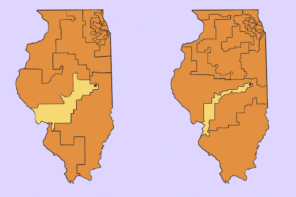President Obama’s recent speech in Indonesia achieved many of the things I had hoped for when he gave his Cairo speech last year, and things that could only be achieved in speaking from Jakarta. As the most populous Muslim nation in the world, Indonesia offers touch points for understanding a multi-faith, multi-cultural, economically developed democracy in a Muslim context. Obama, in touching on all of these points, also demonstrates a more mature use of religious language that hints at future foreign policy goals.
The president approaches Indonesia as an equal in his speech. Unlike Cairo, where the (Arab) Muslim world was treated as unequal potential partners, the Indonesians are treated as a country worthy of America’s respect. Cairo was aspiration, and Jakarta was the real. There are huge differences in political processes in play. Indonesia is a democracy with strong civic institutions and a thriving civil society. The Arab world is dominated by autocracies, while Afghanistan and Pakistan have governments that are in various degrees of uselessness. There is a political angle to Obama’s support of Indonesia, as he attempts to set-up rival powers with China; Indonesia’s close relationship with Australia makes them a credible power center.
Just as important, Obama recognizes that democracy is messy, painful, and not the same everywhere. Indonesia carved out its own understanding of democracy that recognizes its cultural past and desires for the future. There is a challenge of accepting the “modern” on one’s own terms, and Obama indicates that Indonesia has succeeded, whereas the Arab world has not.
In all these statements, there is an undercurrent of Obama saying that the problem is not inherent amongst Muslims or the religion of Islam. Indonesia (and Turkey, Malaysia, and countries with large Muslim minorities like India), have successfully kept what they wanted of their traditions and integrated what they wanted of other traditions. They are navigating what it means to be modern, which the Arab world is having difficulties with. Because of the popular conflation of Arabs and Muslims, both in terms of number and authenticity, including at bodies such as the Council of Foreign Relations, the President needs to obliquely address the concern.
I also believe that Obama was directing the speech to address domestic concerns as well. The key line is “individuals are not defined solely by their faith.” There is so much that is made of Obama’s faith, over his actual accomplishments, that we make faith a more important issue than it needs to be in the US. He mentions that the main mosque in Jakarta was designed by a Christian, and he went to visit it as a Christian. He starts leaning into a space I am uncomfortable with, the idea that all religions are one, but pulls back from it. He does create a wonderful tension that shows that a Muslim-majority country, the largest Muslim population country in the world, is successfully navigating a multi-faith environment, whereas religion is becoming so politicized in the US that we are having a hard time navigating that space well.
Obama’s Jakarta speech shows a real maturation in his use of the language of religion, and his understanding of the dynamics of the Muslim-majority world. Although he still has a lot to learn, as shown by his missteps in India, there is a real change in the way he is looking at religion.




